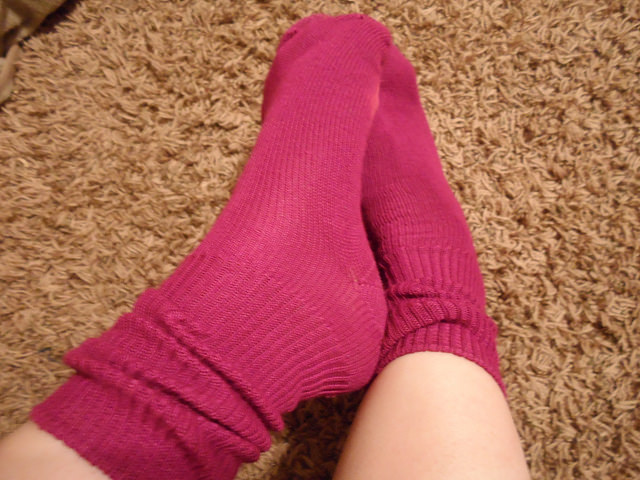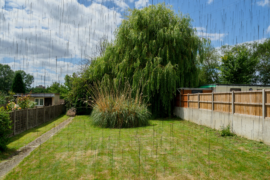Aimee Pogson
With low moans and slapping tails, they hurl themselves upon the beach, pulling their heavy bodies across the sand. It is hunger that draws them from their ocean home, dazed and hollow-eyed. Their hunger for human flesh. The whales drag themselves down the roads, gravel and potholes tearing long gashes in their undead skin. One whale has jammed its head into someone’s bay window, but seems unable to go farther. Its cries echo up and down the street. We watch them from our window, curtains pulled aside, binoculars in our hands. I turn to my wife, say, “There goes the neighborhood.”
She is not amused. She is very rarely amused, has been less and less amused with every passing year of our marriage. “Have you been to the pantry yet?” she asks, referring to our plan to swap the contents of our pantry with the contents of our basement in case of an emergency.
“No, not yet, but I’m headed that way.” I bring the binoculars to my eyes, peer at the whales one last time. They are ghastly white, far whiter than I ever imagined whales could be, and their skeletons stand out against their skin in clear arcs and lines. They are hungry whales. Starving. I hand the binoculars to my wife and hurry to the pantry.
By the time I move the various canned soups and beans and raviolis and fruits to the basement, the whales have spread to our street. I join my wife beside the window—what her role is in our emergency plan I’m not sure—and take the binoculars.
“I almost want to stay up here and watch,” I say. “This is the most fascinating thing I’ve seen in a long time.”
“You would say that. Give me those.” And she takes the binoculars, surveys the streets. “Maybe they’ll find the neighbors before us, but we shouldn’t take any chances. We should head downstairs.”
I stare at this woman who would wish a sad and untimely death by zombie whale on her neighbors and feel a strange sense of distance. She is a stranger to me. Someone I might pass in the streets and not even acknowledge. Her hair is growing gray in streaks and her forehead is a gathering of permanent worry lines. She harasses me about the phone bill (I waste too many minutes), the garbage (I never put the lid on right and the neighbor’s dog gets into it), my friends (we spend too much money at the bar), and my job (I make too much money and waste all of it). I dodge these accusations the best I can and surprise her with flowers. It has been years since I have seen her smile.
I follow her to the basement and we sit in silence as whales swarm overhead. I hum quietly to myself until she gives me a nasty look. I stop, stretch my legs out straight in front of me, twist my arms over my back. I hope to appear to be exercising, just an average man in his basement, avoiding zombie whales, stretching his muscles, but really I am just uncomfortable. When was the last time we sat together like this? Alone? She ate dinner before I got home. I ate breakfast before she woke up. We spent evenings on opposite ends of the house, one reading, the other watching TV. There was Christmas, but her family was over. I don’t know what to say to her.
“Where do you think they came from?” I say, nodding towards the ceiling.
“The ocean.” She shrugs.
She has no natural curiosity. I blame it on her perpetual hatred of life and the people who enjoy being alive, but I smile anyway, ask, “But what makes today different? They’ve never come ashore before.”
She shrugs again and I imagine it’s a physical resistance to my words, a barrier against the air I exhale. “They must be extra hungry. You saw how skinny they are.”
I open my mouth to speak, but there is a crash overhead, the tumult of glass cracking and shattering, the shriek of a whale pinned. “Whales don’t normally eat people,” I tell her after the sounds subside. “This is an unusual incident.”
“They’ll eat people if they run out of plankton,” she says.
I don’t argue. I give up speaking. Instead I sit back and let the hours pass in silence. The electricity goes out, which is to be expected. We occasionally hear screams, explosions from the outer world, which is to be expected. When we grow hungry, we decide to open some soup, but are missing a can opener, which according to my wife is also to be expected. “I can’t trust you to do anything,” she says. “Simple things, like bringing can openers, are beyond your grasp. If these were the cavemen days you’d be dead, eaten by a saber-toothed tiger.”
I nod, agree. If these were the cavemen days I would be eaten, but most likely by choice. “Take me,” I would cry and throw myself directly in the tiger’s path. “I’m a meaty sort of man.”
In the end, I volunteer to go back upstairs to get the can opener. Someone has to and besides, I’m not particularly afraid. These whales are huge, unable to squeeze through doors and windows. I take the steps two at a time, happy to escape if only for a little while. I feel like humming again, but remain quiet.
Night has descended and I tiptoe across the darkened living room. Off to my right, there is a steady rhythmic breathing and I pause. There is something honest about the breathing that attracts me, something honest and alive. I point my flashlight towards the sound and turn it on, bathing the room and a giant zombie whale in yellow light. I jump, but stand my ground. The whale’s hollow eyes glow red in the glare.
The whale’s head is caught in the window. Shards of glass puncture its skin, sink deep into its neck, trapping it in place. There is no blood. Instead a kind of gray goo runs down its neck, evidence of insides dribbling out, but insides that aren’t really alive in the first place. The whale groans at me, smacks its tale against the lawn outside. It’s starving and I’m its meal.
I settle down on the couch and watch it. I’ve never seen a whale this close before, although I have seen whales at a distance, diving and splashing, spraying water in the air. My wife and I used to go whale watching while we were dating. We would stand together by the edge of the boat, her in a yellow hat that tied with ribbon, a girly kind of hat I teased her about endlessly, me with one hand on the railing, the other around her waist. We would shout and point when we saw a whale, directing each other to the spot, laughing when one of us missed it. And the whales themselves were amazing and mysterious, shiny flashes of gray that twisted in air and disappeared in ocean. Gladiators of the water. That’s what they were to us. And we were young and mesmerized: lovers, whale watchers, participants in life. I take this memory and place it on the whale, replace emaciated skin with shining gray, the nighttime lawn with the glinting sun and water, hoping to recreate magic in a world that has drastically changed.
Aimee Pogson currently teaches creative writing at Penn State Erie, the Behrend College, and holds an MFA from Bowling Green State University. Her work has previously appeared in The Berkeley Fiction Review and PANK, among other journals.


